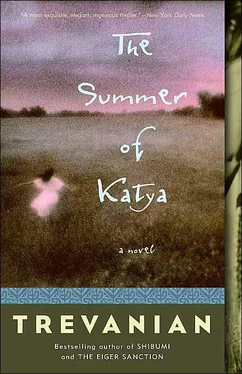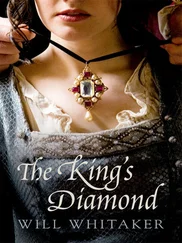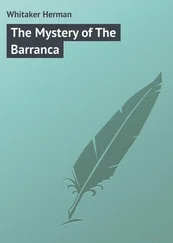Rodney Whitaker - The Summer of Katya
Здесь есть возможность читать онлайн «Rodney Whitaker - The Summer of Katya» весь текст электронной книги совершенно бесплатно (целиком полную версию без сокращений). В некоторых случаях можно слушать аудио, скачать через торрент в формате fb2 и присутствует краткое содержание. Город: New York, ISBN: , Издательство: Crown Publishing Group, Жанр: Триллер, Современные любовные романы, на английском языке. Описание произведения, (предисловие) а так же отзывы посетителей доступны на портале библиотеки ЛибКат.
- Название:The Summer of Katya
- Автор:
- Издательство:Crown Publishing Group
- Жанр:
- Год:неизвестен
- Город:New York
- ISBN:1400098041
- Рейтинг книги:4 / 5. Голосов: 1
-
Избранное:Добавить в избранное
- Отзывы:
-
Ваша оценка:
- 80
- 1
- 2
- 3
- 4
- 5
The Summer of Katya: краткое содержание, описание и аннотация
Предлагаем к чтению аннотацию, описание, краткое содержание или предисловие (зависит от того, что написал сам автор книги «The Summer of Katya»). Если вы не нашли необходимую информацию о книге — напишите в комментариях, мы постараемся отыскать её.
The Summer of Katya — читать онлайн бесплатно полную книгу (весь текст) целиком
Ниже представлен текст книги, разбитый по страницам. Система сохранения места последней прочитанной страницы, позволяет с удобством читать онлайн бесплатно книгу «The Summer of Katya», без необходимости каждый раз заново искать на чём Вы остановились. Поставьте закладку, и сможете в любой момент перейти на страницу, на которой закончили чтение.
Интервал:
Закладка:
I found Paul at the edge of a group of farmers and shepherds, looking off and smiling to himself. I followed his gaze and saw the motorcar that had almost overturned us. It was stationed beneath a tree at the edge of the meadow, its brass headlamps glinting back the low angle of the setting sun.
“They have been delivered into my hands,” Paul said quietly. “It’s enough to reawaken one’s belief in divine justice.”
“Oh come, Paul. For Katya’s sake, let’s just enjoy ourselves. Forget it.”
He smiled at me. “My dear fellow, I haven’t the slightest intention of forgetting it. Well, Doctor? Shall we locate the others? I am looking forward to this evening. I confess I had feared it would be infinitely dull, but things are beginning to look up.”
“Remember your shoulder. It wouldn’t do to hurt it again.”
“You’re such a good-hearted and solicitous fellow. Perhaps you should consider taking up medicine as a career? Come now, let’s set ourselves to the arduous business of having fun.”
We discovered Katya and Monsieur Treville among the throng collected in the village square, his urbane clothes and her white dress and shoes setting them apart. They were standing in the front of a ring of onlookers around the performers of the pastoral of Robert le Diable, Katya smiling on with affectionate interest, as though the performers were friends of hers, and her father watching intensely, occasionally scribbling notes with a pencil stub on a pad of paper. The Devil and the Horse engaged in off-color buffoonery while the Hero performed the Dance of the Glass, leaping with flashing entrechats and landing, balanced on his soft dancing shoes, on the rim of a thick glass that had been filled with wine and set on the stones before him. Twice the glass spilled and once it shattered, but each time it was replaced with shouts of encouragement until the dancer had effected three sauts in a row without spilling the wine, which accomplishment was rewarded with roars of applause and loud whinnies of the famous cri basque from exuberant onlookers, many of whom had already managed to get their noses bent with wine, to use the local phrase.
“The wine represents blood, I assume,” Monsieur Treville muttered to me. “Perhaps sacramental blood. And I suppose the Devil is one of the ancient, pre-Christian earth deities. Can you provide any insight into the symbolism of the Horse, Doctor?”
“I’m afraid not, sir. And I doubt that anyone here could. It is one of those Basque rituals that is performed simply because it has always been performed, and no one has ever questioned its meaning.”
“Perhaps the Horse represents fertility,” Monsieur Treville suggested. “You see how its chases after the Maiden, who slaps at it and tries to hide herself behind the Devil?”
I nodded absently, more interested in watching the delight and fascination play across Katya’s features than in constructing a symbolic substructure for a ritual I had seen performed so often.
“What are they saying?” Monsieur Treville asked me.
“Who, sir?”
“The Horse and the Devil, with all their shouting and bantering.”
I shrugged, and perhaps my cheeks reddened a little. It had never occurred to me to take any note of it as a boy, but the Basque badinage between the two performers was boldly bawdy, having to do with sexual competence and the size of members. I glanced uneasily towards Katya and cleared my throat. “Ah… perhaps you are right, sir. Perhaps the Horse does represent fertility.”
“Hm-m. And what is that large object with the knob on the end that the Maiden keeps trying to take from the Hero?”
I looked for help from Paul, but he smiled blandly back and said, “Yes, Jean-Marc, do tell us. What do you make the object out to be?”
Katya lowered her eyes and smiled the faintest conceivable smile.
“I… ah… to tell the truth, I never thought about it, sir. Say! What do you think the person who dances on the glass represents?”
Monsieur Treville shrugged. “Both hero and clown… could easily represent mankind. And how appropriate, if you consider it for a moment.”
“So,” Paul said, “if I read the profound symbolic significance of all this correctly, it is the gripping story of Mankind dancing on a glass of blood while the Devil chats with Fertility, and the Maiden tries to steal the Hero’s—excuse me, Doctor, what did you say that was?”
With a final shrill crescendo of the txitsu flute and a rattle of the stick drum, the performance was over, and the crowd applauded wildly and surrounded the performers to treat them to a txikiteo. I had used the Basque word in explaining where the crowd was bringing the players, and Katya asked me to translate it.
“A txikiteo is a tour of the bars, with a glass of wine taken at each one.”
“And how many such places would you estimate there are here in the village?”
“Twenty-five or thirty, counting the temporary buvettes set up in front of every shop.”
“My goodness, Jean-Marc. And they will accomplish a tour of thirty bars?”
I laughed. “It isn’t the accomplishment that matters, it’s the devotion with which the effort is undertaken. The Basques have few native attributes beyond their capacity for dance and hard work, but they rise to the heroic when it comes to drinking at a fкte.”
“I have always heard them spoken of as sober-minded people—even dour, if you do not find that word offensive,” Monsieur Treville said.
“Indeed they are. Most of these men are farmers and shepherds. And they work hard and long every day of the year, save for the village fкte and the day of the marriage of their children. On those occasions, however, they drink and dance. And they take their vices every bit as seriously as their virtues.”
Night descended upon us quickly, as it does in the mountains, and the crowd in the village square thickened until it was impossible to move without pressing against people. Katya and I soon lost sight of the other two, and I felt obliged to keep my arm around her waist to prevent us from being separated. Colored paper lanterns strung across the square were lit with smoldering punks by young men standing on the shoulders of other young men, and there was much horseplay and toppling and staggering and laughter as they jousted and tugged at one another to see which young man could remain on the shoulders of his teammate the longest. One or two small fights broke out, quickly stanched by friends pulling the combatants apart and taking them off to have a glass or two, but no real bagarres basques broke out, as surely they would before the night was over. There would be at least one great melee of battle, with the young men using their belts and buckles as weapons. And there would be cuts and welts and a few broken noses and chipped teeth. After all, what would a fкte be without its bagarre? A feeble and shoddy thing.
“And will there be a bagarre tonight?” Katya asked.
“Oh, probably. Does that prospect frighten you?”
“Not at all.” Her eyes shone. “It’s exciting.”
Accordion, flute, and drum struck up a traditional tune, and there was a pulse in the throng drawing it towards the center of the square. People pushed back to form a circle through which a few daring couples percolated to begin the dancing. Katya and I found ourselves on the inner rim of the circle, and she pressed my arm forward.
“You want to dance?” I asked.
“Oh, yes. Of course!”
“Do you know this dance?” It was a simple form of the Kax Karot, which begins with couples, then develops into a line dance with all the young people leaping into the air on cue, the men with their arms around the waists of the women on each side, leaping as high as they can, making the women cry out for fear of losing their balance.
Читать дальшеИнтервал:
Закладка:
Похожие книги на «The Summer of Katya»
Представляем Вашему вниманию похожие книги на «The Summer of Katya» списком для выбора. Мы отобрали схожую по названию и смыслу литературу в надежде предоставить читателям больше вариантов отыскать новые, интересные, ещё непрочитанные произведения.
Обсуждение, отзывы о книге «The Summer of Katya» и просто собственные мнения читателей. Оставьте ваши комментарии, напишите, что Вы думаете о произведении, его смысле или главных героях. Укажите что конкретно понравилось, а что нет, и почему Вы так считаете.












